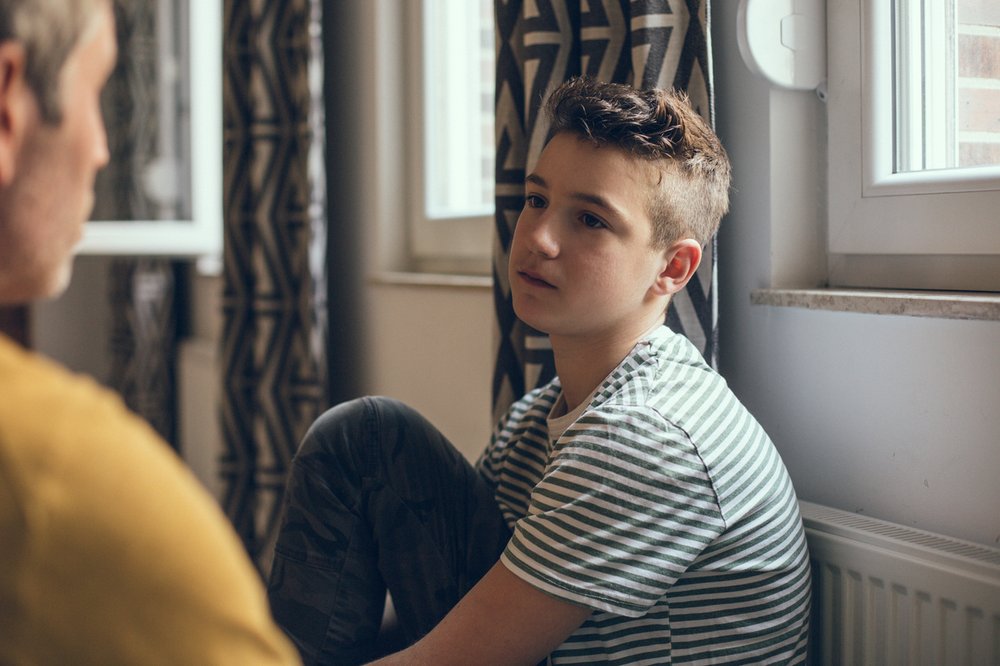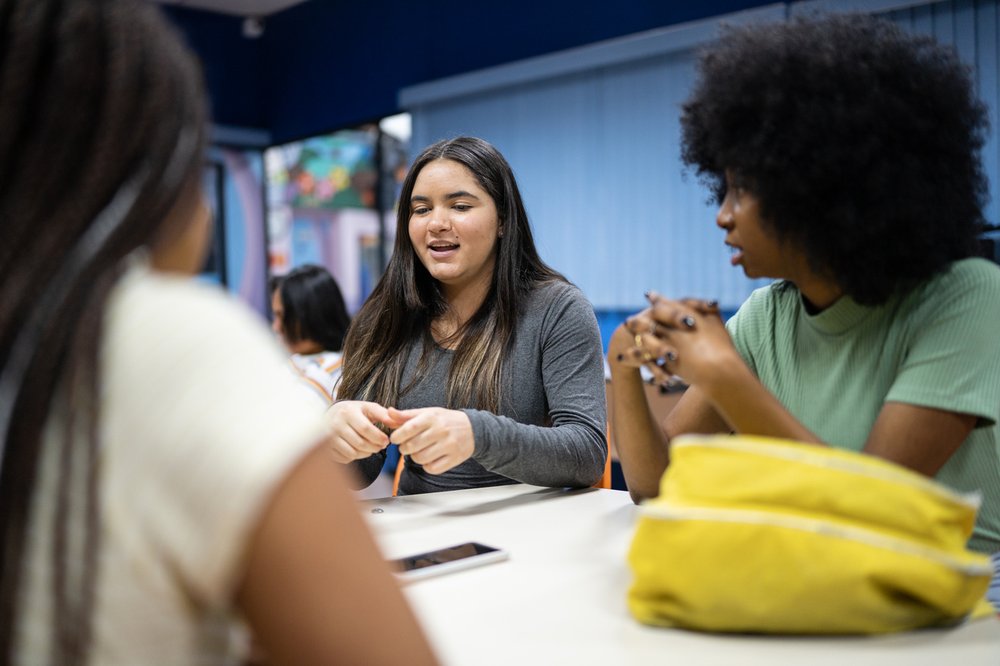4 ways The Blues Programme is making a difference in youth mental health

Mental health is becoming a bigger worry for more and more children and young people. Through our Blues Programme, we're able to help.
In 2023, one in five children and young people aged eight to 25 in England had a ‘probable mental health disorder’. This is something our services and frontline staff see first-hand, everyday.
In our services, 28% of children have mental health needs identified at their initial assessment – this number has doubled since before the pandemic.
Through our Blues Programme, we offer specialist support to children and young people to help them build the emotional resilience they need to cope with life's challenges.
Last year we helped 54,878 people with their mental health and wellbeing. Help us reach even more
The Blues Programme is a course for 13- to 19-year-olds who suffer from or are at risk of developing a mental health condition.
The programme is delivered in schools and led by our specially trained Young Person’s Practitioners or ‘Blues Busters’.
It runs over a six week period, and in that time young people engage in a mixture of cognitive behaviour therapy, coping strategies, and physical activities. The course aims to:
- Reduce the signs of low mood and negative thoughts;
- And teaches emotional resilience.
In 2023/24, The Blues Programme reached almost 8,000 young people across the UK.
75%
73%
81%
We understand the importance of reaching young people as early as possible.
Teenage years are a time when young people experience a lot of change and new pressures. It’s not just the pandemic that’s had an impact on youth mental health, there’s also a rise in social media use and school pressures. Young people also face body image issues and increasingly more are worrying about their family finances.
Talking to young people about mental health helps remove the stigma. And it helps them develop healthy coping skills early.
Seventy-five percent of adults with lifelong mental health issues first experience symptoms by the age of 18. With The Blues Programme, we can help young people be aware and take control of their mental health.
Are you a parent or carer looking for support?

The Blues Programme gets young people talking about mental health.
Mental health worries can be lonely and isolating, especially as a young person when you may not feel confident sharing your feelings. This is why The Blues Programme runs weekly group sessions - it provides a safe space where they can open up and talk. They can then continue these conversations outside of the classrooms and with their families too.
[The Blues Programme] gives them that forum to be able to open up as a group with other young people who are going through some of the same things that they've gone through.
Mrs Murphy, Safeguarding Lead, Holly Lodge School
Robyn and Rachel, two of our Blues Busters, explain why this is important: “We've heard from young people that being able to be in a group with others and hear how they feel, and that it’s similar to how they feel, validates them.
“It validates that actually, I'm not different for thinking negatively in this way or I'm not different for responding to this issue in this way. Actually, we all feel the same. And now together we're going to think of ways to think differently.”

The Blues Programme aims to build mental health resilience in young people.
The programme approaches this through its blend of cognitive behavioural therapy, coping strategies ,and physical activity. With this, young people learn skills that they can apply in their daily life.
To give them that resilience and the skills to process the world around them, is a vital part of what we should be doing in schools.
Mr Keen, Headteacher, Holly Lodge School
Robyn and Rachel shared more about what this looks like: “We look at things like challenging negative thoughts through techniques such as ‘where's the evidence?’ and ‘what's the alternative?’, and then encourage the young people to reward themselves for practising new skills.
“We get them to use a mood diary so that they can log their mood. And we encourage group conversation on how the peers can support each other, how everyone can think differently, and how we can encourage each other to come up with new ideas on supporting themselves.”
Esther's come a long way. A few years ago, while taking her GCSEs, Esther struggled with a bout of depression.
Now, since taking part in The Blues Programme, Esther's able to better understand her thoughts and feelings. The programme gave her the tools to move forward and the knowledge that she isn’t alone.
The Blues Programme helped Esther cope with her struggles.
The Blues programme teaches young people to take what they learn and adapt it to their own situations.
98% of students from the last year say they would recommend the service to a friend.
Our Blues Busters have told us that it’s the voluntary aspect that makes the course so successful. The young people must choose to engage in the activities and use the strategies they learn to see a change.
“We give them a toolbox that they can pull out from” Robyn and Rachel explained. “We empower the young people to challenge their own negative thoughts.
“I think that’s the beauty of the program. That it's about empowering the young person to take control of possible triggers – their own negative thoughts – in order to make that change. It's them doing the cognitive reform in themselves.”
Don't be afraid to reach out and go and speak to somebody. There's always somebody who wants to listen. And there are always people that are actually going to listen and love you.
Larin, a young person on The Blues Programme at Holly Lodge School
Poor mental health should never be a barrier to any child or young person fulfilling their potential. We want to make sure every child can reach their potential. With your help we can.
Help us be a vital lifeline for children, young people and families
Keep up to date with Action for Children!
Sign up to our newsletter




